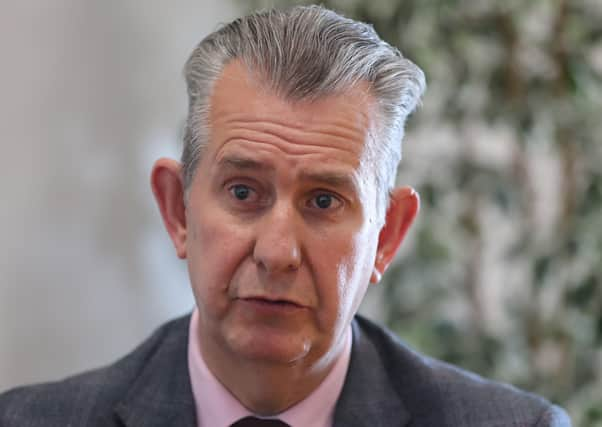Poots discusses NI Protocol with Lord Frost and Brandon Lewis


Minister Poots said he impressed upon Lord Frost the need to ensure a smooth flow of all goods and outlined his concerns of the impact on Northern Ireland’s agri-food industry when grace periods end later this year.
He said: “Today I met with Lord Frost and Brandon Lewis to once again impress upon them the need to remove the impractical and costly barriers to trade for Northern Ireland’s agri-food sector in particular. The burdens faced are unfair and will increase the cost of food and food production in NI - this is likely to be passed on to small agri-food businesses in NI and to the NI consumer. With the right will, solutions can be found to ease these burdens.”
Advertisement
Advertisement
Minister Poots informed Lord Frost that his departmental staff could not continue to operate under the current volume of checks and that the ending of grace periods would place a significant strain on resources which could not be met.
He continued: “To date, the cost of checks on goods arriving from GB is £24million. DAERA receives approximately 2,800 Common Health Entry Documents (CHEDs) weekly, over 90% of which relate to Product of Animal Origin.
“This problem will be further exacerbated with the phasing out of grace periods in October 2021. This will result in a huge increase in the number of consignments to be cleared through NI ports, in the order of 15,000, and the associated certification to be produced by GB officials and checked in NI. This volume of checks is unsustainable due to the resourcing requirements necessary to control this movement of goods for domestic supply chains.
“Despite the efforts of my staff to streamline the process, the current arrangement places an intolerable burden on stakeholders and is unnecessary and not proportionate to the risk inherent in the goods.
“In order to minimise disruption to individuals and businesses in Northern Ireland, we urgently need to ensure the smooth flow of all goods, including live animals, on a long-term, permanent basis.”